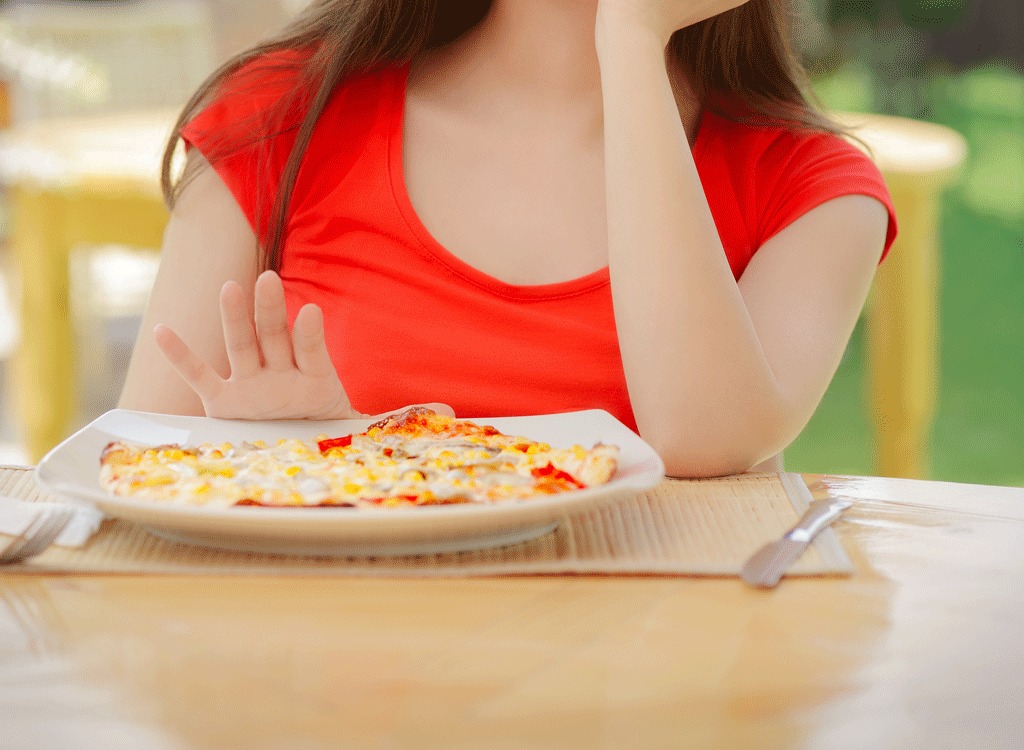 Christmas is not only the feast of love, but also the feast of unbridled feasting for many people. After the crispy Christmas goose, a hearty roast with dumplings and an overdose of cookies, you are usually plagued by an unpleasant feeling of fullness at the end of the second Christmas holiday at the latest.
Christmas is not only the feast of love, but also the feast of unbridled feasting for many people. After the crispy Christmas goose, a hearty roast with dumplings and an overdose of cookies, you are usually plagued by an unpleasant feeling of fullness at the end of the second Christmas holiday at the latest.
What causes bloating?
After a sumptuous, fatty meal, the stomach expands due to the amount of food and the gases produced during the digestion process. With the help of so-called stretch receptors, which are located in the stomach and intestinal wall, the current “filling level” is transmitted to the brain. If you eat too quickly, the first signals of satiety often arrive after you have already eaten too much.
What can I do about the feeling of fullness after eating?
The bad conscience due to gluttony usually comes all by itself. Unfortunately, that won’t help you now, but these 4 anti-fullness tips will:
1. Exercise promotes digestion
Instead of slumping at the table, get moving. However, don’t throw on your sports gear right away, because sweaty sports are not a good idea after an eating marathon – after all, your body is already busy enough with digestion. A walk, on the other hand, can be done even with a full belly and the movement will stimulate your digestion. The fresh air also helps against the tiredness after the meal. A few hours later or the next day you can do another challenging workout. This will give your metabolism a boost and you’ll burn off some of the calories you’ve consumed.
2. Supply your body with nutrients
Even if your Christmas dinner was too rich, don’t start starving yourself afterwards. Starvation is never a good option, even if the last meal was a bit bigger. But you should still give the remaining cookies a wide berth. Your body has certainly had enough fat, sugar and white flour. For him it was just a lot of empty calories, without any vitamins and minerals. But exactly these he needs. That’s why you have to supply your body with healthy food now. This is best done in the form of homemade smoothies. The fiber from fresh fruit and vegetables also boosts your digestion, so you feel fit again quickly.
3. Drink a large glass of water with your meal
Fiber is important for your digestion, but also a big challenge for your gastrointestinal tract. Therefore, it is important that you drink enough fluids to support the intestines in their work and to prevent constipation. It is best to drink water or unsweetened herbal teas, such as peppermint or chamomile. These have a calming effect on the stomach at the same time. Sufficient water also increases the activity of your kidneys, which act as a filter to remove toxins from your body through urine.
4. Stay away from “digestive liquor
Is it true that a shot of liquor after a meal helps digestion? Unfortunately no. In fact, the exact opposite is true: instead of stimulating digestion, alcohol prolongs the digestive process. The liquor inhibits the peristaltic movements of the gastrointestinal tract. For information: peristalsis is the wave-like movement of the muscles in the digestive tract that transports the food pulp from ingestion to excretion. At the same time alcohol inhibits fat burning. Because alcohol is digested faster than fat. This means that before the intestines get to work on the Christmas meal, the alcohol is digested first, so the feeling of fullness lasts even longer.
Although alcohol slows digestion, a digestive liquor often leaves you with a comforting feeling that provides relief after a sumptuous meal. this is because the alcohol dilates the blood vessels and the muscle cells relax. The feeling of fullness is reduced – but it has a negative effect on digestion. Therefore, it is better to drink a glass of water, tea or espresso instead of liquor. The bitter substances in tea and coffee stimulate the production of gastric acid, which promotes digestion. Caffeine can also prevent you from going into a food coma. Note, however, that the tannins in tea and coffee inhibit iron absorption, making it harder for your body to absorb the mineral.
You want to take a little alcohol break in January? Great idea for a healthy New Year’s resolution. Here you can find out what positive effects abstaining from alcohol has on your body.
Conclusion: Feeling of fullness? Yesterday’s news!
If you eat a healthy diet, “bingeing” like at Christmas is only half as bad. Pay more attention to your diet a few days after the festivities and eat as “clean” as possible. This includes healthy foods such as fruits, vegetables, whole grains, fish, meat and eggs. Industrially processed foods, sugar and unnecessary additives, on the other hand, should be left out of your diet.
Contents

